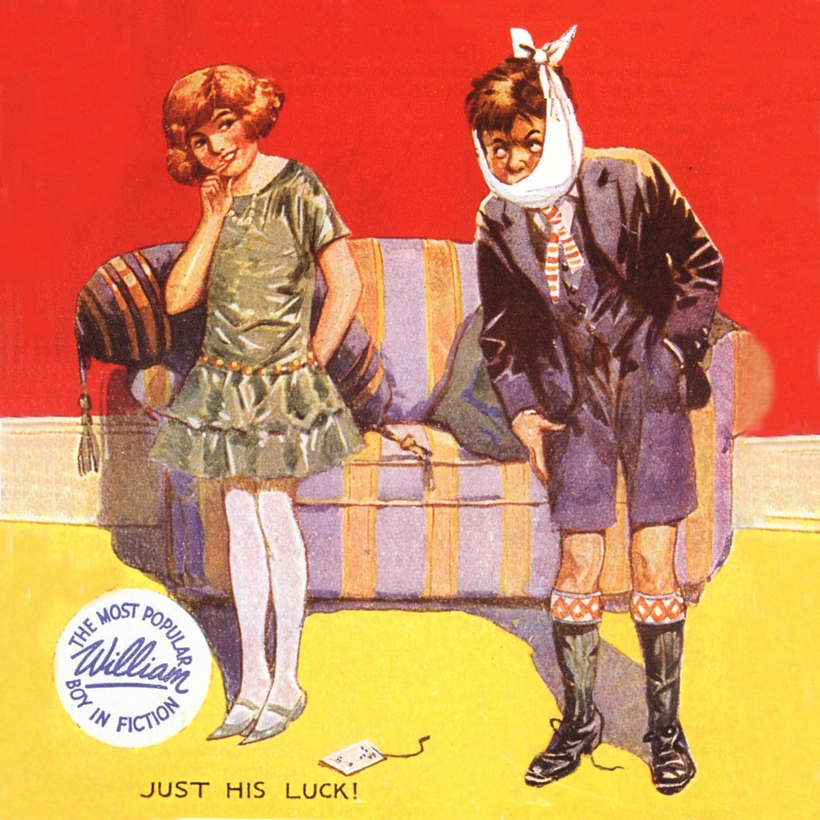Ebenezer Scrooge may be English literature’s most famous scorner of Christmas, but he has a powerful rival in William Brown. The perpetually 11-year-old hero of the hilarious stories written by Richmal Crompton between 1919 and her death, in 1969—and collected in 38 books seldom out of print—wreaks havoc all year round, but the holidays provide a special stage for his anarchy.
The scruffy, snub-nosed William—debunker of 20th-century fads, bane of the pompous, vain, and affected—doesn’t object to Christmas per se. What he resents is his middle-class family’s unimaginative approach to its rituals and “the final bitter disappointment” occasioned by their dreary gifts. In William’s Truthful Christmas, he idly desecrates the book of Church history and brush and comb he receives.


